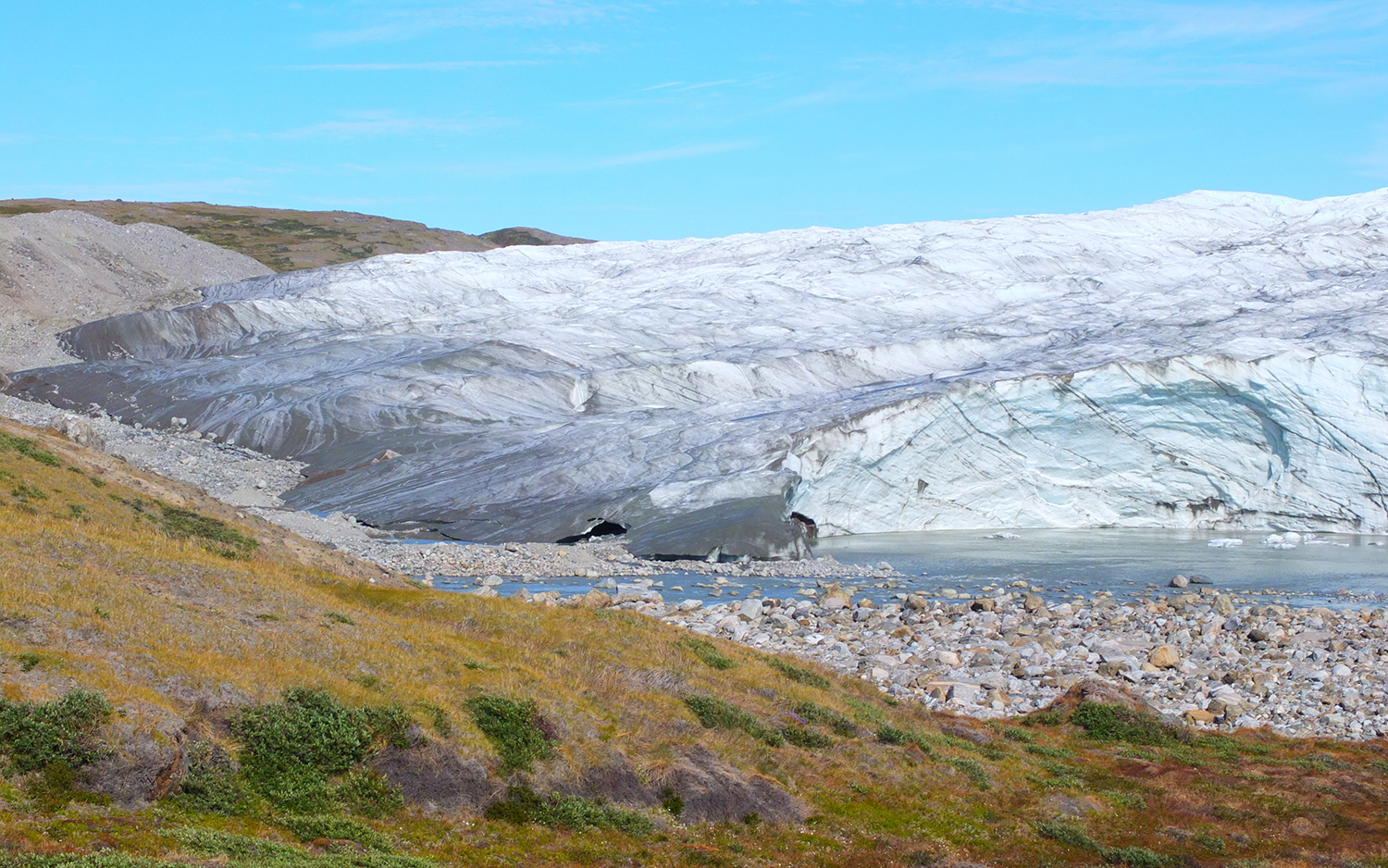After Scorching Europe, Heat Wave Is Poised to Melt Greenland

A heat wave that shattered records in Europe this week is on the move, and it could melt billions of tons of ice in Greenland.
Hot air that originated over Northern Africa recently brought blistering heat to Europe; yesterday (July 25), Paris sizzled at a staggering 108.7 degrees Fahrenheit (42.6 degrees Celsius), and temperature records were broken across the continent by up to 6 degrees F (3 degrees C), according to Accuweather.com.
Today (July 26), a representative of the World Meteorological Organization (WMO) announced that atmospheric flow would carry this scorching heat to Greenland, which lost over 170 billion tons (160 billion metric tons) of ice in July and 80 billion tons (72 billion metric tons) of ice in June from surface melting alone, Reuters reported. [Images: Greenland's Gorgeous Glaciers]
When this warm air arrives in Greenland, it will likely cause "another major peak in melt area," said Twila Moon, a research scientist with the National Snow and Ice Data Center (NSIDC) in Boulder, Colorado.
Intense melt during the summer months has been the norm rather than the exception in Greenland since 2006, NSIDC reported in 2013. More ice is lost every year, with the rate of melt accelerating rapidly, Moon told Live Science in an email. This could have serious implications worldwide by contributing to rising sea levels and further disrupting global climate, Joyce Msuya, the U.N. Environment's acting executive director, said in a statement in March.
"What happens in the Arctic does not stay in the Arctic," Msuya said. "More urgent climate action is needed to steer away from tipping points that could be even worse for our planet than we first thought."
Primed for melt
During the 1970s and the 1980s, Greenland lost an average of 50 billion tons (45 billion metric tons) of ice each year. From 2010 to 2018, that figure shot up to an average of 290 billion tons (263 billion metric tons) annually. This summer, the extent of the melt could surpass the record set in 2012. That year, about 97% of the ice sheet's surface thawed, NASA-JPL Caltech reported at the time.
Get the world’s most fascinating discoveries delivered straight to your inbox.
"2012 was a year of particularly large ice loss. Unfortunately, an early melt event in Greenland in June may have primed some of the ice sheet surface for more melt," Moon said. The ice sheet is losing its surface snow; warming is also creating lakes and ice crystals on the sheet's surface, increasing the likelihood of further melting.
The good news is that even substantial ice loss from just one year probably won't create a tipping point for Greenland's ice sheet. The bad news is that significant ice loss over many years — with no years of ice gain — means that Greenland's accumulated ice is draining away at an unprecedented rate, Moon said.
"Maintaining this rapid ice loss over many years decreases the stability of Greenland and makes significant ice loss — and large associated sea level rise — more likely," she said.
However, it's not too late for people to mitigate the worst-case scenario for Greenland's ice by dialing back the greenhouse gas emissions that are fueling human-caused climate change, Moon said.
"Our collective actions will play a major role in determining how much and how quickly ice is lost from Greenland, and how severe the associated impacts will be," she said.
- Image: Greenland's Dramatic Landscape
- In Pictures: The Giant Crater Beneath Greenland Explained
- Stunning Photos of Greenland's Supraglacial Lakes
Originally published on Live Science.

Mindy Weisberger is a science journalist and author of "Rise of the Zombie Bugs: The Surprising Science of Parasitic Mind-Control" (Hopkins Press). She formerly edited for Scholastic and was a channel editor and senior writer for Live Science. She has reported on general science, covering climate change, paleontology, biology and space. Mindy studied film at Columbia University; prior to LS, she produced, wrote and directed media for the American Museum of Natural History in NYC. Her videos about dinosaurs, astrophysics, biodiversity and evolution appear in museums and science centers worldwide, earning awards such as the CINE Golden Eagle and the Communicator Award of Excellence. Her writing has also appeared in Scientific American, The Washington Post, How It Works Magazine and CNN.


